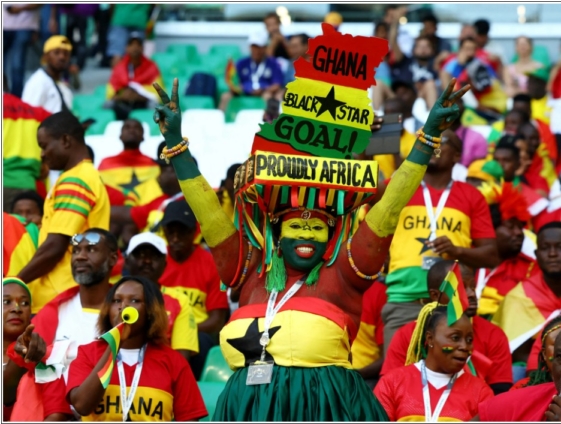In the last 10 years or so, my enthusiasm for football, particularly for Ghana's national team, the Black Stars, has waned considerably. This decline in interest is not a reflection of the sport itself but a symptom of a deeper societal issue: misplaced priorities.
As a nation, our attention often seems fixated on the world of sports, overshadowing more pressing concerns. For instance, local authorities, such as District Chief Executives (DCEs) and mayors, often escape scrutiny despite the persistent issues of filth and choked drains plaguing our communities. Meanwhile, a missed penalty by a football player like Asamoah Gyan can incite prolonged public outrage. This disproportionate reaction highlights a troubling disconnect.
The issue extends beyond sanitation. Employment ministers, responsible for understanding and planning the country's human resource needs, are rarely held to account, yet we are quick to castigate foreign coaches for the national team's setbacks. This skewed approach to accountability suggests an unsettling comfort with mediocrity and a lack of seriousness in addressing the fundamental challenges that face our nation.
Football, while an important aspect of our culture, should not eclipse critical areas such as food production, sanitation, and resource optimisation. If we look at some of the most developed countries in the world - Japan, Singapore, China, the USA, Switzerland, Luxembourg, the UAE, and Qatar - their achievements are not primarily defined by their prowess in football. This observation should prompt us to rethink our own priorities.
The allure of using football as a tool to showcase Ghana on the global stage is understandable. However, this strategy loses its charm when juxtaposed with the reality of our unkempt streets and markets. The conditions of places like Agbogbloshie, Kaneshie, and Makola are now reasons for personal embarrassment, to the extent that I decline requests from foreign guests to visit these areas. This situation begs the question: have we become desensitized to our own shortcomings?
It is high time for a national introspection and a realignment of our priorities. The path to sustainable development and international respectability demands a focus on areas that yield long-term benefits for the greater good of Ghanaians and the global community. Recognising and addressing our challenges head-on, with the same fervor we reserve for football, could be the first step towards a more prosperous and dignified future.
Latest Stories
-
I want to focus more on my education – Chidimma Adetshina quits pageantry
2 hours -
Priest replaced after Sabrina Carpenter shoots music video in his church
3 hours -
Duct-taped banana artwork sells for $6.2m in NYC
3 hours -
Arrest warrants issued for Netanyahu, Gallant and Hamas commander over alleged war crimes
3 hours -
Actors Jonathan Majors and Meagan Good are engaged
3 hours -
Expired rice saga: A ‘best before date’ can be extended – Food and Agriculture Engineer
3 hours -
Why I rejected Range Rover gift from a man – Tiwa Savage
3 hours -
KNUST Engineering College honours Telecel Ghana CEO at Alumni Excellence Awards
4 hours -
Postecoglou backs Bentancur appeal after ‘mistake’
4 hours -
#Manifesto debate: NDC to enact and pass National Climate Law – Prof Klutse
4 hours -
‘Everything a manager could wish for’ – Guardiola signs new deal
4 hours -
TEWU suspends strike after NLC directive, urges swift resolution of grievances
4 hours -
Netflix debuts Grain Media’s explosive film
5 hours -
‘Expired’ rice scandal: FDA is complicit; top officials must be fired – Ablakwa
5 hours -
#TheManifestoDebate: We’ll provide potable water, expand water distribution network – NDC
6 hours

